5 Ways Music Helps Your Child Develop
7 min read
Last Modified 20 September 2024 First Added 30 May 2023

Oh, how we love the sweet sound of music… from songs that can make you pour your heart out, to rhythms that can get you moving and grooving!
Throughout this article we will be exploring five factors, how music helps cognitive, emotional, physical, social and language development.
There are many benefits to listening to music such as improvement in attention span, memory and even a child’s mood!
Read on for ways you can help your child grow by listening to music.
Cognitive development is how children think, explore, and solve problems.
From the early stages, children are discovering and listening to new pieces of information, and music is a terrific way to enhance their skills. Here are a few ways in which music aids cognitive growth:
Children, when singing along to a song, learn to memorise sentences. This naturally improves their memory and ability to hold onto information and later recall it.
Music also helps a child’s attention span by engaging them in a task for a longer period. Improving a child’s attention span can be a useful skill to have in later education. Singing nursery rhymes and playing music during playtime is a fantastic way for your little one to develop their cognitive skills.
Some of the main benefits of teaching an instrument to your child would be their development in hand-eye coordination and motor skills, whilst also working on their conflict resolution skills.
Let them tap the bars of a xylophone, press the chunky keys of a piano , beat a rhythm on a drum or pluck the strings of their first guitar
Incorporating music into everyday routines can be a fun way to enhance cognitive skills. Having a dance whilst cooking a meal, listening to music during bath time or singing in the morning are great ways to make daily routines entertaining and memorable.
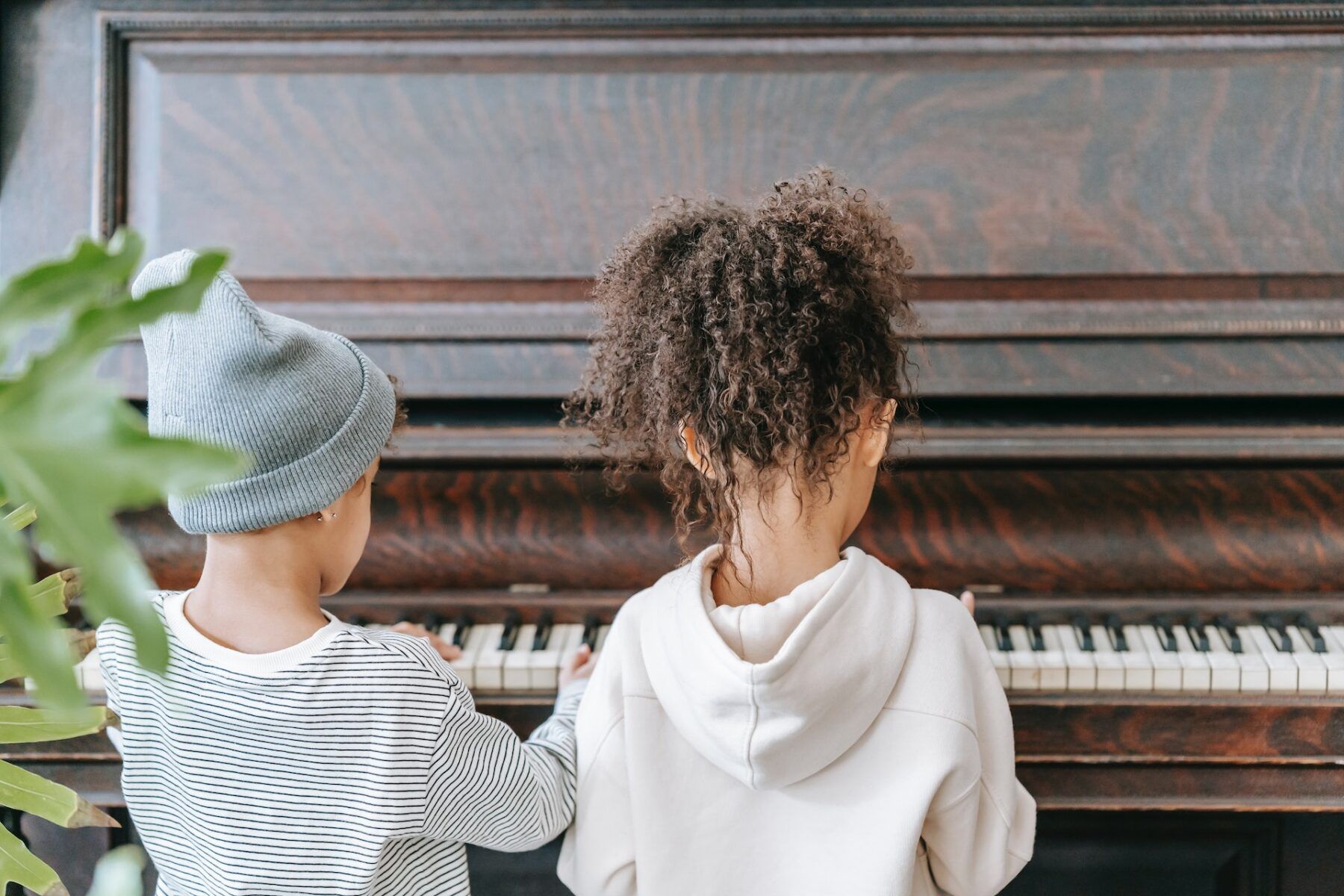
We all want our children to develop their language skills and for good reason. Language is essential for communication, and important for developing social and cognitive skills.
Music is a fun and effortless way to introduce unfamiliar words and concepts to your children. Children learn about all kinds of things through songs and rhymes, such as animals, colours, shapes, numbers, and general topics.
Additionally, songs and rhymes teach children grammar rules, whether it’s how to structure sentences or learn verb conjugation.
Let’s dive into why singing is a wonderful way for teaching children language skills. Firstly, not only do children get to be engaged and learn in a fun environment, but they also improve their pronunciation, intonation, and rhythm.
Singing along to songs is also a fantastic way to learn new languages such as French, Spanish, Portuguese and many more.
As a result of learning new songs, children improve their listening skills which benefits their understanding of sounds in our environment, depicting the letters in the alphabet and improved attentiveness.
You may ask, how can I involve music in my child’s language development?
Here are a few fun tips to get you started:
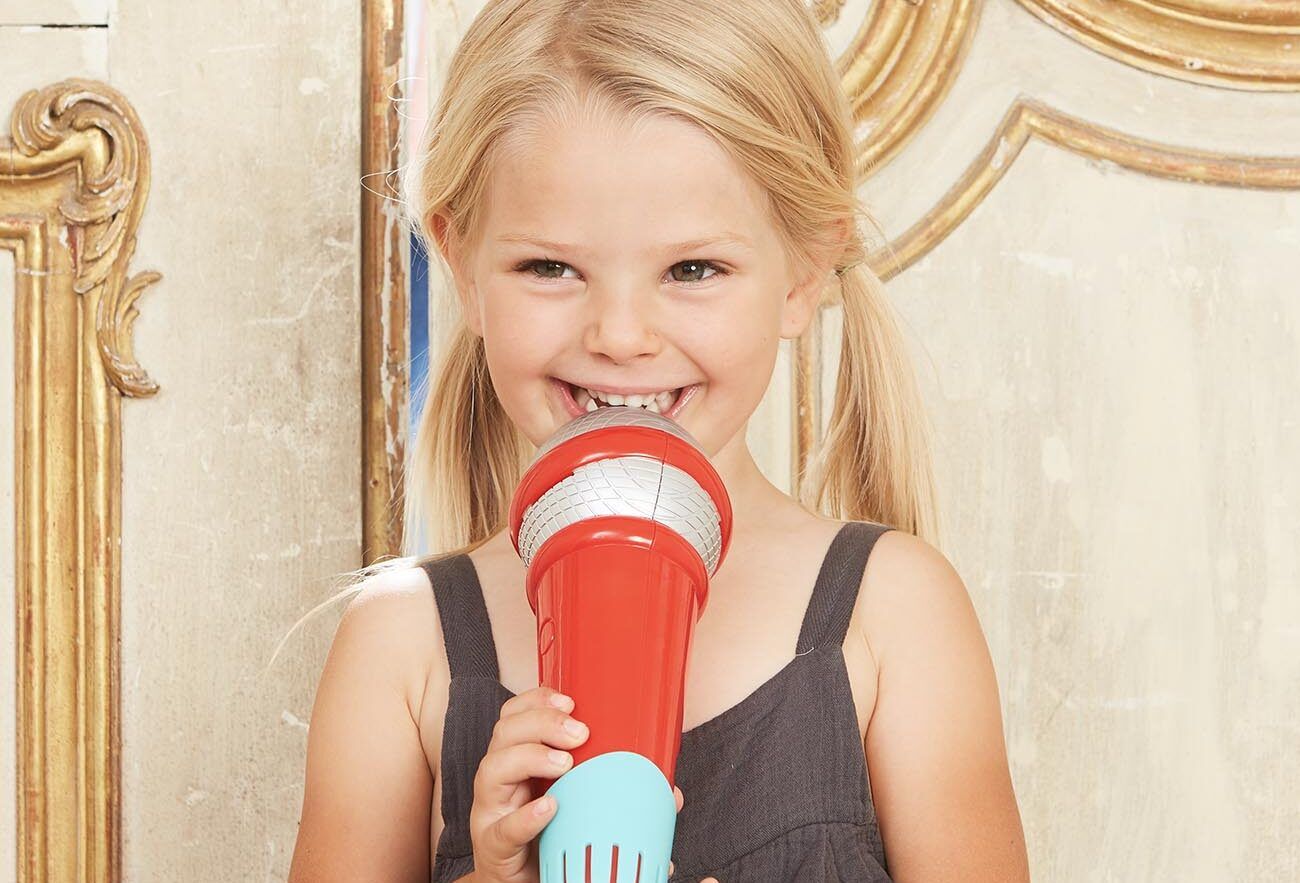
Emotional development is a vital skill for sustaining positive relationships and thriving in life. Here are some ways music can be a positive influence on your child’s emotional development and well-being.
Music is a fantastic way to help your little one in regulating their mood or emotions. Both infants and toddlers can be especially sensitive to emotional tones in music.
Upbeat, happy music can help a child feel more enthusiastic or cheerful, giving them a positive mood outlet. For example, when you’re preparing your infant for their first day of school or their doctor visits, you may play upbeat music to get them excited.
Slow and soothing music can be a source of unwinding for children, helping them feel more at peace and relaxed in stressful situations. For example, soft lullabies can help calm a crying baby or help a restless toddler get to sleep.
Soft, settling music can help a child slow down and focus on their breath work. This particularly helps children who may struggle with anxiety or hyperactivity.
Try encouraging your little one to have soft music playing in the background whilst they draw, build, or take a bath. This can promote relaxation and mindfulness in your child’s everyday life.
Help your little one express themselves through dance and music! This is a fantastic way for your child to build confidence whilst learning how to express their feelings and emotions.
We all know how much our children love to dance and sing, encourage your little ones to create their own songs and dances, this will lead to them being able to express themselves in a creative and fun way.
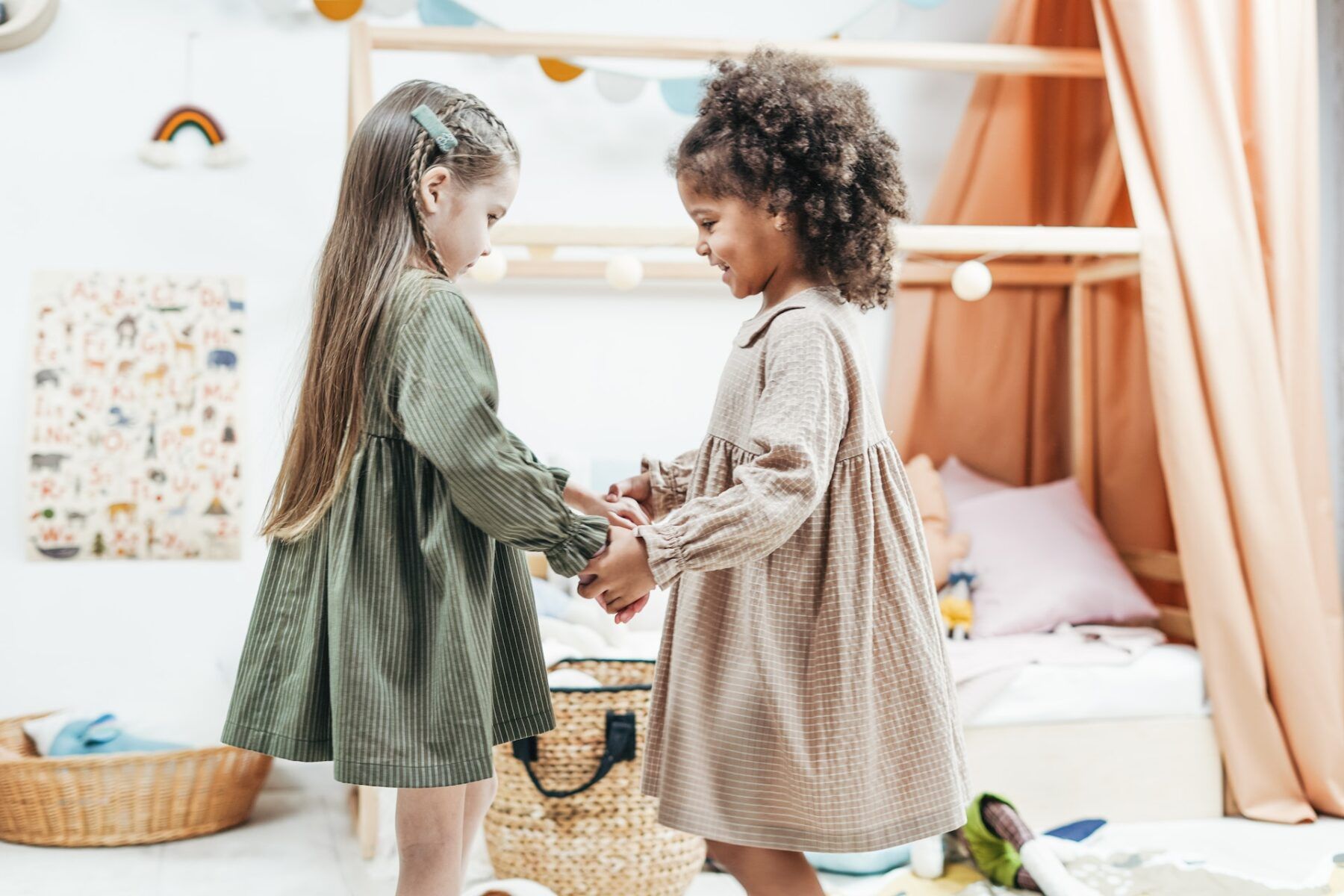
Seeing your child thrive in group settings and being able to show off their strong social skills is always a win in any parent’s heart.
Let’s explore how music can be an entertaining and motivating way to enhance your little one’s social development, regardless of their age.
Music offers several opportunities to come together and collaborate through social interactions. Children can sing, dance, or play instruments together.
Infants and toddlers both benefit from musical activities such as clapping to the beat or bouncing. This helps coordinate their movements with each other which helps build on your child’s social and motor skills.
Music is a great motivator for children to learn turn-taking and patience.
For example, there are many musical games where children must pass an object or instrument around in a circle, this helps your child learn to wait to participate on their turn.
There are several entertaining and engaging musical games and activities that will enhance your child’s social skills and interactions.
For example, why not try playing “Hot Potato?”
This requires children to pay attention to others throwing a ‘hot potato,’ each child must throw the object whilst the music is playing and when the music stops, whoever is holding the potato must also stop.
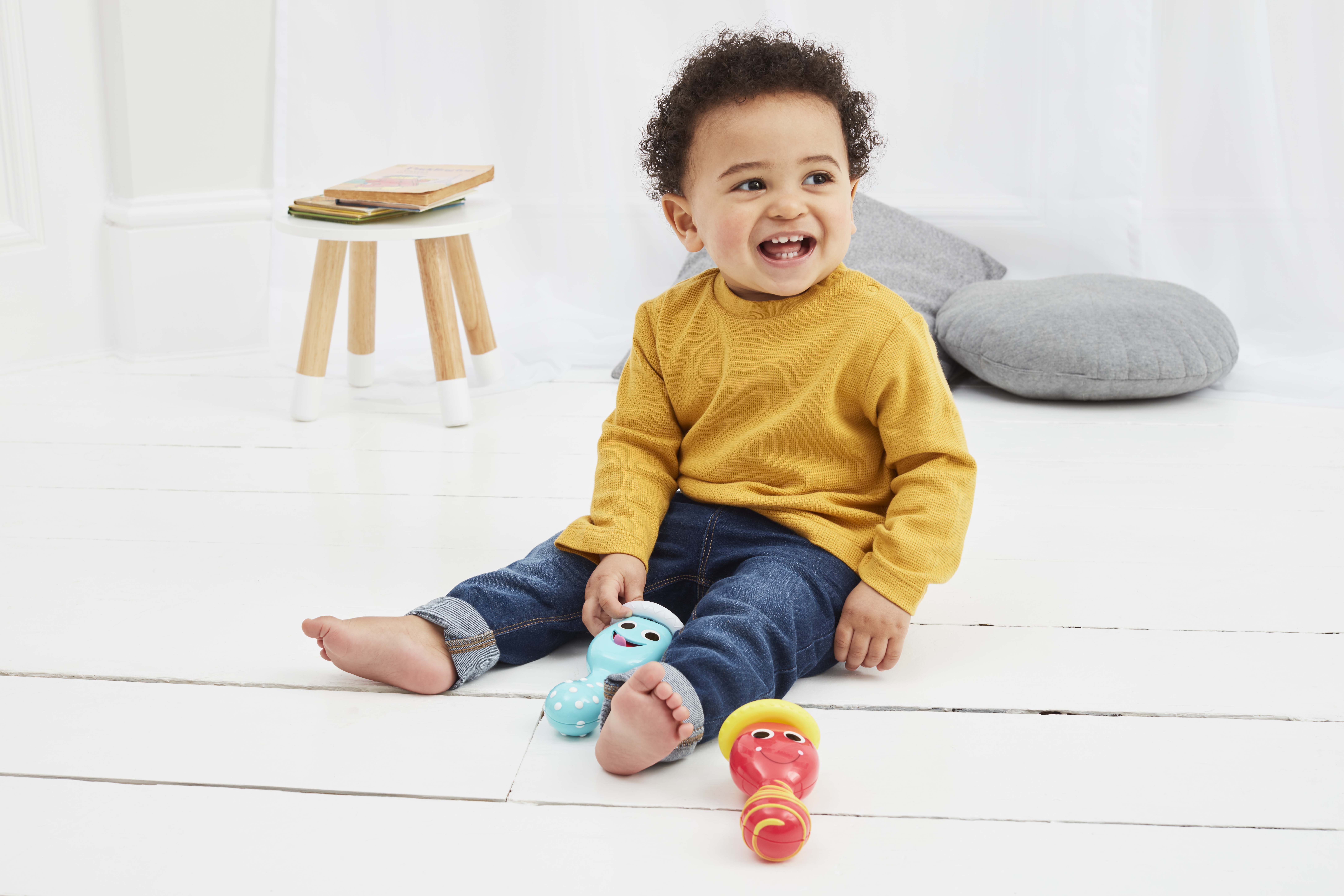
Music, once again, can be used to promote physical development as it aids in developing fine motor skills, physical activities, and coordination!
For infants and toddlers, music can be a powerful tool in aiding them to reach, grasp and crawl towards instruments.
As children grow, they can also benefit from playing musical instruments and dancing to their favourite tunes. This naturally enhances a child’s fine motor skills.
For example, you may start clapping along to a beat with your little one to develop their hand-eye coordination or make funny dance moves to improve their balance and coordination!
Simple games like Musical Chairs, Freeze, or Musical Statues encourage children to have fun and be creative whilst exercising physical movements.
Upbeat rhythms can encourage physical activity. Many professional athletes incorporate music into their routines to keep them motivated, you can do the same for your little one.
Inspire their imagination and create a pillow obstacle course in the living room whilst the theme tunes to their favourite TV Show or films play in the background. Creating the most magical memory that they will find hard to forget.
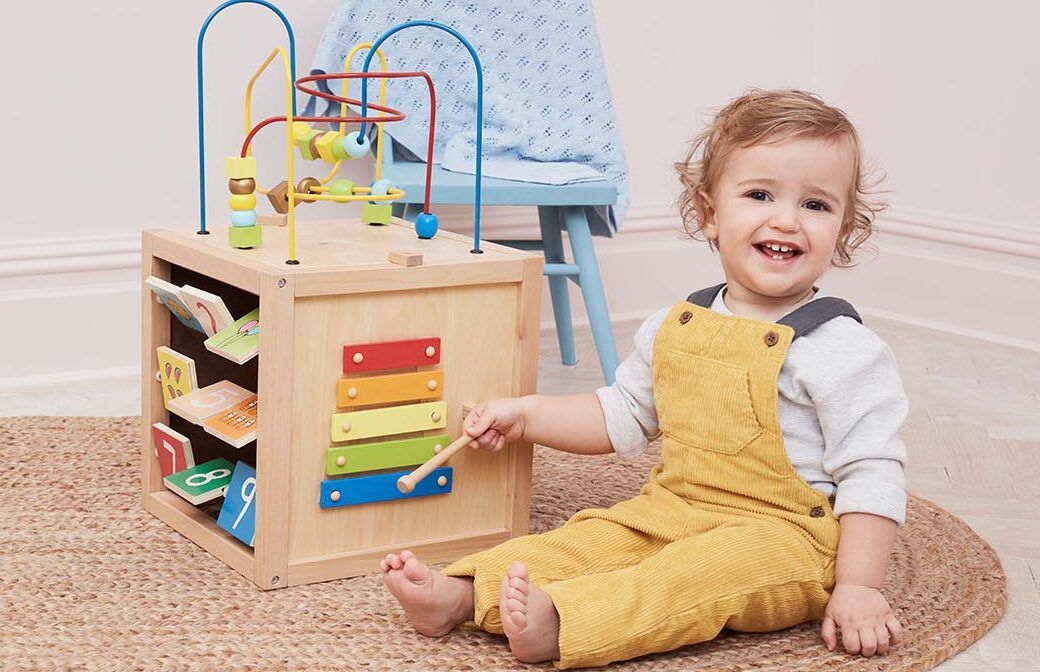
Music is both entertaining and plays a vital role in children’s development. Through music exposure, children can enhance several aspects of their growth, from movement-based activities, singing, dancing, or playing an instrument, this exposure from an early age can have a massive impact on any child.
Watch as they grow to be healthy, happy, and well-rounded little stars and have a look at our learning toys to assist you on this journey.
Read our disclaimers.